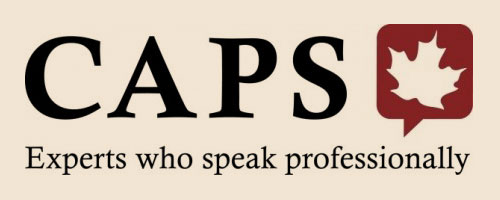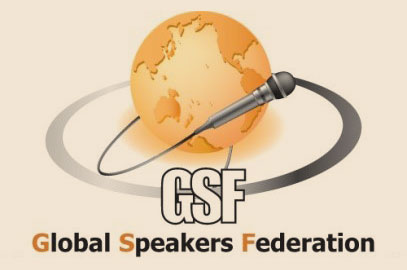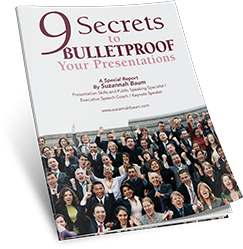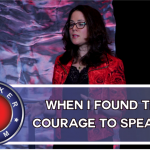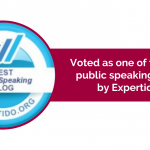Suzannah interviews TEDx Speaker Coach Teri Kingston
Suzannah interviews Teri Kingston, TEDx Speaker Coach, and soon-to-be TEDx Ottawa speaker in April, of Real Impact Speaking. In this video, Teri shares some incredible tips on how to:
- Set yourself up to be chosen to get on the TEDx stage
- Nail down your idea to make it TEDx-worthy
- Navigate the TEDx application process successfully
- Prepare yourself for the big day if your idea is chosen.
Less than 10 minutes long, and packed with tons of actionable information, whether you want to get on a TED stage or simply up your speaking game.
(full video transcript below)
View this video directly on YouTube.
Enjoyed this interview? Have a question for Teri? Leave a comment below, and let’s continue the conversation!
VIDEO TRANSCRIPT
– Hi there! Suzannah Baum again, and I’m really excited right now to be sitting next to Teri Kingston, the TEDx Coach. Yesterday, when I was at an event with Teri, she was introducing herself to someone and he said, “What do you do?” And she said, “I help people get onto TEDx stages.” And he went, “What?!” “Tell me more!” And so, at this conference, a lot of people have been doing exactly the same thing. They’ve been going up to Teri and saying, “Tell me more… “How do I get onto a TEDx stage?” So, I just want to ask Teri a couple of questions, understand a little bit more about what it is that you do and how you do it, and how you get people onto TEDx stages.
– Great. Well, first of all, thank you. This is so much fun. The Conference has been great. The people here are fantastic. And Suzannah has a desire to serve, and I love this opportunity to talk to who she serves. And so, TEDx stages, it’s a dream for a lot of people. I meet a lot of people that come up to me and say, “Oh yeah, I hear you help people, “and you coach TEDx speakers.” And I do. I’ve worked with the Ottawa TEDx event and Kanata TEDx event going on four years now, so, more than 20 speakers have been coached directly by me over the last couple of years. And it’s in that, and working as one of the event organizers, part of the selection committee, and I start to see the applications that people put in when these events open up their call for speakers. And it hurts my heart.
– Oh no!
– Because I know so many people that have this big dream of getting on a TEDx stage, and they’re not even making it past the first entry point, because they don’t know what to put in an application. And so I’m starting to help people with that side, even more than the, “You’ve been accepted as a speaker, “now I can coach you.” I want to take people from zero to TED.
– Yeah. Well, they’ll never get to that spot if they never get accepted.
– Exactly.
– Right? So that’s a really interesting point. Everybody thinks about the end point of being on the TED stage and giving the speech, but if you can’t make it past the Committee, you’ll never get on that TED stage, no matter how amazing of a speaker you are. So, what can you tell us about the application process, and the mistakes that people make, and, maybe, what they could be doing instead, to increase their chances?
– The biggest mistake I see is, people are still trying to sell who they are and what they do, either in their business, or even in their passions. “I am a …” “I have been in this business for 20 years.” “I’ve been a keynote speaker on other people’s platforms, “therefore TED should, “TEDx, the local events, should want me on their stage, “because I am so good at what I usually do.” And the thing with TEDx, and even TED itself says, “We don’t want people that are giving the same talk all around.” So, it’s not the keynote, it’s not the signature talk that you might be used to giving in any other kind of speaking situation. It’s something you’ve created specifically for a TEDx event that’s about the idea that you want, that you cannot stand to know the world is not going to know what your unique idea is, or what you’re piercing insight is, on that idea that anybody else but you could not do. And so, we get application after application about people’s five steps to this, and their signature system for that, and they’re, you know, “When I do my keynotes, “I’ll talk about this, this and this.” And that’s not a TED talk. It’s a great keynote. It’s a great professional speech. But it’s not what a TEDx audience is looking for.
– So, it’s not necessarily a professional speaker, or even a confident speaker, would assume that they should automatically be accepted. It’s the experts in a particular field–
– Exactly.
– Who have the idea worth spreading.
– And it’s that, you know, “camel through the eye of a needle” thing. It’s actually harder for professional speakers to get accepted, because they’re so used to pitching themselves and pitching their signature talk, that they don’t understand it’s turned around for the audience, and it’s, “What’s the idea?” And then, “What can the audience do with that idea?” so that they’re thinking, acting, feeling, doing differently when the speaker is off the stage and your life is back to normal. It’s a hard thing to turn some people around.
– So how do you recommend to people, what is one the top pieces of advice that you give to those who are filling out the application?
– Have a really solid idea of what your idea is! Know what your idea is that you think is worth spreading. And then find the way to explain that to the Committee, in fewer than 10 words for what your actual core part of the idea is. And then, can you tell me, there’s an exercise I put my speakers through. Stanley Park, Vancouver, it was on their event page. And it’s called, “Tough, Tangible, Specific, Urgent or Relevant”. So, what tough, tangible, specific, urgent or relevant problem are you trying to solve with your idea? Can you tell me what that is in under 50 words? Can you tell me what the solution is in under 100 words? Can you tell me what the audience can do with your solution in under 100 words? And can you show the outcome, or the eventual power that that tough, tangible, specific, urgent, relevant? And what is your unique, piercing insight that’s so, so important. It can NOT be other people’s ideas. Or, you’ve done this much research, or, you know. It’s gotta be your personal experience that’s come out of something that you’re very passionate about, based on a single idea worth spreading. It’s not easy, believe me. Finding the idea is the hardest part. Some people have it when I meet them. And other people, it could take lots of conversations. It could take, you know, just brainstorming, or doodling, or whatever, but writing down every day. Sometimes it takes… Victoria Labalme, who’s a speaking coach, says sometimes you have to find the idea that leads to the idea. And that only comes through discovery.
– Sometimes there is the idea, but you don’t quite know how to verbalize the idea yet, and then put it into a format that you could speak in front of an audience. So, once, let’s say someone takes all your advice, they get through to auditions. So, what is the audition process like, in terms of what they’re looking for, in terms of your platform skills, and in terms of how you are verbalizing your message?
– Right. So, every event is different. The local TEDxs are local, and each event will have its own criteria. So it’s very important to read the speaker application page. Some events don’t even ask for an audition tape. They just go on the paper application, and then they’ll call. You’ll be shortlisted, maybe. They may have, and they may do a follow-up interview. They want to hear more about your idea. They want you to flesh it out a little bit. Some organizations want a two-minute video when you submit the paper into video, because it’s so easy to sound really, really good on paper, but if you stand there and we can see that your delivery skills are really rough, it could eliminate a speaker. But we would rather see a speaker with a super idea that doesn’t speak very well yet, because we can coach that into them, than a speaker that thinks they’ve got superb platform delivery skills, and their idea is shaky. So, TED is committed to, every TEDx event has speaker coaches, that’s why I’m on the team for the two that I’m with, so that we can help people with really great ideas be strong enough speakers, so when it’s their turn to step into that red TED dot, they’re ready. And so, it’s not you’re the best speaker out there, it’s the idea.
– Wow. Okay, so then, the final question, I guess, because we’re going to wrap it up soon. Final question is, if someone is thinking about doing a TED talk, or someone has seen so many of the TEDx talks and they’re thinking, “Maybe, maybe I would like to do that.” “But I don’t know where to start,” “what to say, what I’m supposed to do first.” What advice would you give them?
– You have to find your idea. It all comes to that. And so, look for something that is that burning passion inside of you. If someone were to say, “You’ve got an hour left “to give the last message you want,” “what do you want people to know?” It’s going in to, sometimes what really irritates you. You can find a great TEDx talk sometimes on all the things that really bug you about your own business, maybe. Or something that you just think, “If only the world knew this, “they could do that.” And so that’s where it starts. You’ve got to find the idea. If you don’t have an idea, then the TEDx stage is not the place to be.
– Teri Kingston, thank you so much for sharing this. There’s so much more I would like to ask you, but I know that we’re running out of time. How would people get in touch with you if they wanted to talk to you about this whole TEDx process.
– At realimpactspeaking.com. So, that’s the fastest way. I’m on Facebook at Teri Kingston Speaking Coach, but realimpactspeaking.com, send me a note and I’ll connect.
– Amazing.
– Thank you.
– Thank you so much, Teri, thank you for being here.
– Thank you, that was fun.
– And I’ll see you downstairs at the Conference.
– Excellent!
– Bye.

